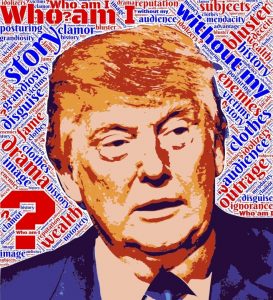 Claudia Zucca, UK Data Service Data Impact Fellow and Marie Curie Early Stage Researcher working on the VOTEADVICE project, discusses the challenges of developing impact of her research on the influence of the internet on voting behaviour.
Claudia Zucca, UK Data Service Data Impact Fellow and Marie Curie Early Stage Researcher working on the VOTEADVICE project, discusses the challenges of developing impact of her research on the influence of the internet on voting behaviour.
Research, especially conducted within University walls, is often considered removed the from real life in which decisions that matter for everyone – for society – are taken. When this is the case, it represents a missed opportunity for social growth. On the other hand, it must be said that developing and demonstrating research impact is difficult. There are plenty of people who aim for their ideas to be transformed in social policies and therefore achieving research impact is a very competitive process.
How do you get to contribute to shaping the society of the future?
Achieving impact is a long stairway. At first there is the identification of a problem; secondly the provision of evidence that enables the understanding of the problem; thirdly persuading stakeholders that the problem you are raising needs immediate attention from them. Consequently, a larger number of people need to get involved in order to create the necessary push to achieve social change.
Academics can find their place in several different steps of this stairway, but since their job concerns researching and research brings evidence, that’s their primary role. In fact, social policies need to be guided by the identification of social problems, which need to be based on evidence. If the problem you suggest for public attention is not supported by enough evidence (research results) or if you cannot make its importance crystal clear for everyone around you, it will just be ignored or forgotten.
Where is my place in this scenario?
I have been trained as a political scientist, and I am interested in the behaviour of voters. People do not live in bubbles, and plenty of empirical evidence suggests that their voting choices are a combination of personal attitudes and external inputs. My focus is on the external inputs, the media influence of voting. Growing up in Berlusconi’s Italy was crucial for me to realise how much the media can be powerful in shaping people’s preferences.

These effects of media on the political and social life of citizens are a social problem, and this phenomenon needs to be understood and monitored by legislators.
Providing evidence is what I’m doing right now with my research.
The effects of the television and other traditional media have been extensively analysed and understood already. However, new media, like the Internet still need to be targeted and explained because not enough has been done yet.
Did the media influence the presidential election in the US? This is a question that needs a careful analysis of the effects of the Internet and especially social media like Twitter to be answered.

The new possibilities opened by the IT revolution provided us with new instruments that can be used not only to express ourselves but also for better understanding how our society works. The Internet produces insanely large quantities of data. Data analysis is, therefore, the way to respond.
Analysing these data and trying to find new methods suitable for the understanding of these data to provide evidence for the legislators of an immediate future is the impact I am targeting at this stage of my career.
I am not the only one; many researchers all over the world are spending their energies for having these results, these explanations. This problem needs a lot of workforces to be raised and addressed.
